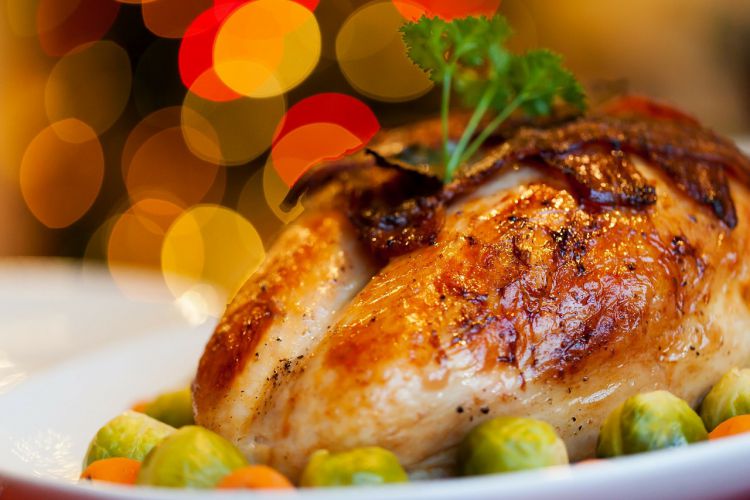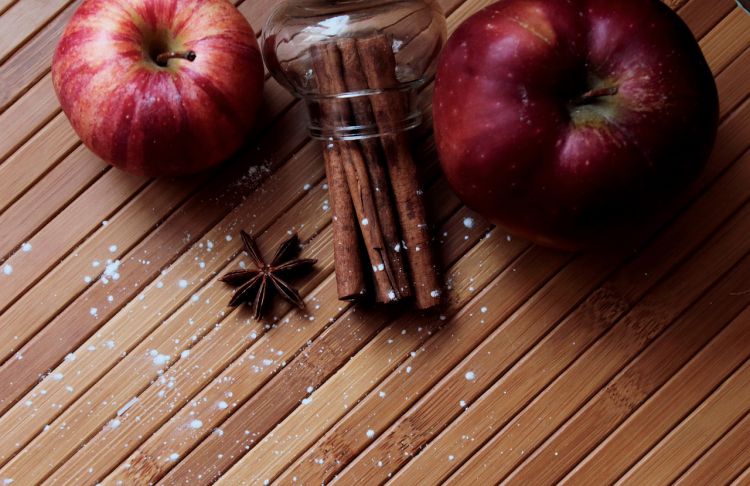The Christmas Survival Guide – How To Stay Healthy
Fleur Brown is a nutritional therapist with 25 years’ experience and with the festive season about to get underway, she’s put together a Christmas Survival Guide.
Many of us get overwhelmed with all we have to do at Christmas, and end up feeling unduly stressed and worn out, leading to over-eating, partly due to needing more energy, partly due needing to relax and partly due to the availability of delicious foods such as mince pies, chocolates and festive biscuits. These temptations and the enormous amount of high carbohydrate sweet foods we seem to eat in December can contribute to gaining an average of 4lb to 5lbs - pounds which can then be difficult to lose. It would be good to avoid having to do the depressing but inevitable "dry January" or "detox January" to desperately try and lose the excess weight.

So, how do we keep on an even keel both dietary wise and stress wise without depriving ourselves?
Plan Ahead - if you can start planning your present list and start shopping for these in an easy relaxed manner in early December (or even in November) - you may feel less pressurised as Christmas looms. If you are sending out Christmas cards - write them during the last weekend of November - one job out of the way for December! If you are entertaining friends or family or having people to stay over Christmas - remember you too must enjoy yourself and not look after everyone else but also yourself. Plan what you will be cooking and serving each day you have guests well in advance and order food on-line wherever possible. Get your guests on board to bring some of the food and also to help with the preparation of food, laying the table, clearing and washing up - so that you are not doing it all!
Be Aware Of What You Are Eating - the cold weather and lovely temptations predisposes us to eat more carbohydrates and sugary foods - which then metabolise if in excess, into fat! To avoid you straying too far into this Carb/Sugar heaven, here are some survival guidelines:
Going Out
• If going to a party, don't go hungry, eat a protein rich food such as a two-egg omelette or nuts and seeds or a small pot of natural full fat yoghurt or even a hard-boiled egg.
• Put some unsalted nuts in your bag or pocket and have a good few handfuls to help fill you up and thus not over-indulge in the carb-rich canapes on offer.
• Don't feel obliged to eat everything on offer - by all means have a mince pie if you wish, but do you really need to eat two or three of these?
• Head for the protein, salad and vegetables, or if in a restaurant, keep away from the carbohydrates (rice, pasta, bread, and potatoes) and focus on meat, fish, vegetarian protein, chicken and lots of vegetables or salad. A soup to start with (without the bread and butter) is always good and filing and If you fancy a dessert - share one with a friend - "one pudding/two spoons please" should be your mantra.
What to Drink?
• Sadly, alcohol is a recipe for weight gain. So, moderation is the key. When under stress it is easy to reach for one too many glasses of wine at home. When out and if not driving home, it is also easy to keep continually sipping wine or cocktails when out with friends and having a good time.
• If you find it hard to limit yourself to one glass of wine, go for a long drink like a weak gin/vodka and slimline tonic, or whisky and soda as they have no sugary carbohydrates. Or if having wine, consider spritzers. Drinks such as cocktails or Bucks Fizz are NOT a good idea with all the high sugar additions such as orange juice and sugary spirits.
• To slow down the glucose rush from the alcohol - never drink on an empty stomach. Have a large handful of some unsalted nuts, a piece of cheese, and some slices of salami and olives, before having an alcoholic drink.
• Drink water at the same time as wine - one glass of water (sparkling or still) to one glass of wine. Sip your wine and then have a sip or two of water. Always, always ask for water and ensure you do the 1 - 1 - it really helps to dilute the effects of the alcohol in the bloodstream. Do this at home too, when entertaining.

How to Eat On Christmas Day (damage limitation)
• Don't skip breakfast - avoid carb-heavy cereal, but have some scrambled or boiled/poached eggs or smoked salmon with a small slice of rye or sourdough toast and butter.
• Snacking - go for nuts or low sugar fruit such as dried apricots, figs and prunes or small chunks of cheese.
• Chocolate - go for high quality, low sugar chocolate like Green and Black (85% dark chocolate). Just a few squares can prove very satisfying.
• Christmas starters can be based around seafood, smoked salmon, avocado and salad leaves or even a cheese soufflé with some salad leaves - so you don't spoil your appetite. A bowl of home home-made or good quality bought soup is another good option.
• For your main meal - feel free to fill up on your choice of roast and also lots of vegetables such as red cabbage, Brussels sprouts, peas, broccoli etc. Enjoy the roast potatoes (preferably cooked in lard, goose or duck fat) but keep those to one or two small potatoes and fill your plate with the other vegetables.
• Desserts do not need to be off the list - just have a small portion with full fat yoghurt, cream or crème fraiche but stay away from the ice cream or custard.
• Cold platters are great - pick and choose cold meats, cheeses and lots of salad including perhaps if you have time, some home-cooked coleslaw. Just hold the baked potatoes and bread rolls.
Keep Moving - try and get out for around 20 minutes per day - simply walking outside to clear the mind and relax the body will benefit you and help keep you stress-free. Avoid sitting for too long - get up every 30 minutes or so and walk around or even just stand up and sit down again several times per hour.
Look After Your Wellbeing - don't set unrealistic goals over Christmas. That applies to entertaining, exercising, socialising, shopping, preparing food and eating or drinking. Christmas is not a time for dieting or over-indulging either - just be aware of what you are eating and drinking, limit the carbs and sugary foods and focus on eating plenty of good protein, vegetable, soups and salads. Enjoy yourself and don't feel guilty - relaxing with friends and family is vital over these few days. It's all about being sensible and making some informed choices.
Really do take some time out to relax daily in the lead up to Christmas. As I said before - go for a walk daily, or take 20 minutes out reading a magazine or book, or listen to a play or some music on the radio whilst cooking, have a warm relaxing bath with Epsom Salts (which is full of healthy magnesium to help ease the muscles) and a few drops of lavender oil (to relax the mind) - at the end of the day to help you sleep soundly. If you like to meditate - ensure you find just 15 minutes daily to do this - going into Christmas with a relaxed mind and body will pay dividends.
By Fleur Brown, Nutritional Therapist
Visit the Fleur Brown Nutrition website
